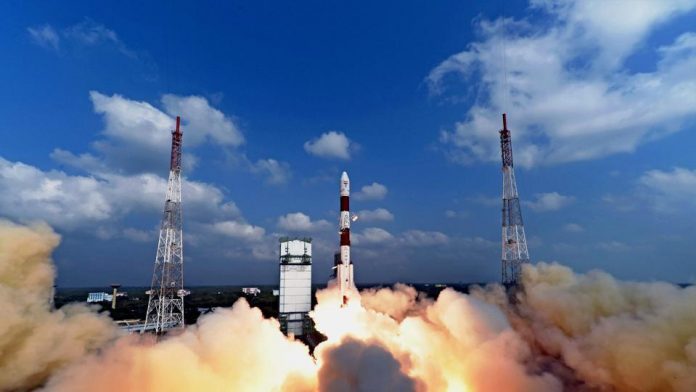India’s first satellite that is co-assembled by Indian Space Research Organisation (ISRO) with a private consortium is set for launch on August 31, 2017, a landmark for the country’s attempt to involve local firms in spacecraft production.
The IRNSS-1H or the backup navigation satellite Navic with a new atomic clock is being hurled into space on August 31, 2017, on the homegrown Polar Satellite Launch Vehicle (PSLV) rocket. This satellite is the first of the two satellites – being contracted by ISRO to a consortium of small firms led by Alpha Design Technologies, a Bengaluru-based aerospace firm.
So far, private firms have only built components and systems for India’s satellites and rockets. ISRO had planned to tap private players over a decade ago to build its satellites, but the experiment failed as it found the industry wanted a large-scale commitment before it began work.
In December last, ISRO shortlisted Alpha Design-led consortium and offered to hand hold the team of 70 engineers in satellite assembly techniques at the ISRO satellite center in Bengaluru.
“We are quite satisfied. Despite us hand holding, we have not lost time on building the satellite,” said M Annadurai, director of ISRO Satellite Centre in Bengaluru. “Once this satellite is launched, we will begin the work on the second satellite where most of the work will be done independently by the (private consortium).
ISRO hopes the two Navic satellites would be a good experiment for the private teams to learn and start building satellites on their own for the space programme. ISRO’s larger goal, besides boosting India’s navigational capabilities, is to create a rung of private companies capable of building satellites independently.
With that, it could potentially hive off production of it’s over 50-odd satellites to the private sector, freeing itself to work on more complex spacecraft and rockets for its future.
India is a sweet spot when it comes to making satellites and launching them from its soil. It’s Polar Satellite Launch Vehicle (PSLV) has emerged as the workhorse to send small satellites from across the globe into space.
ISRO is looking at the consortium approach to not only involve the industry to build the PSLV rocket, the first of which is expected to be launched by 2020 but also enable private players to pitch themselves as integrated service providers: design, build and launch services of satellites for customers globally.
Alpha, founded by Col H S Shankar, a retired R&D head of Bharat Electronics, in early 2000, is already excited about the future.
“We have gained a lot of experience in the first satellite. We had two engineers work with every one ISRO engineer to absorb and learn how to make a satellite, almost like Guru Shishyas,” said Col Shankar.








